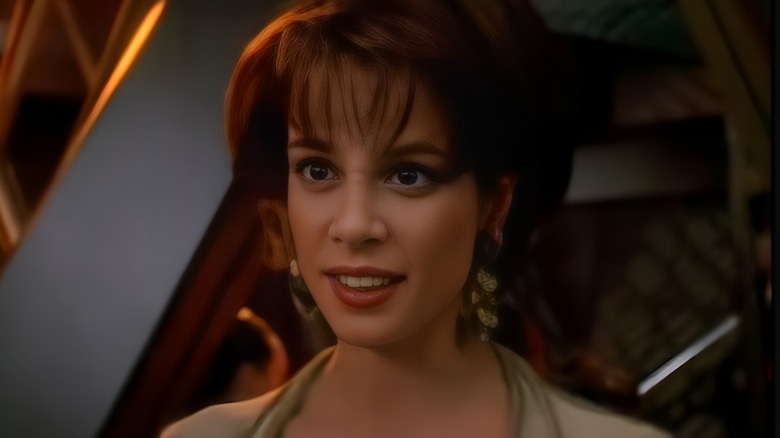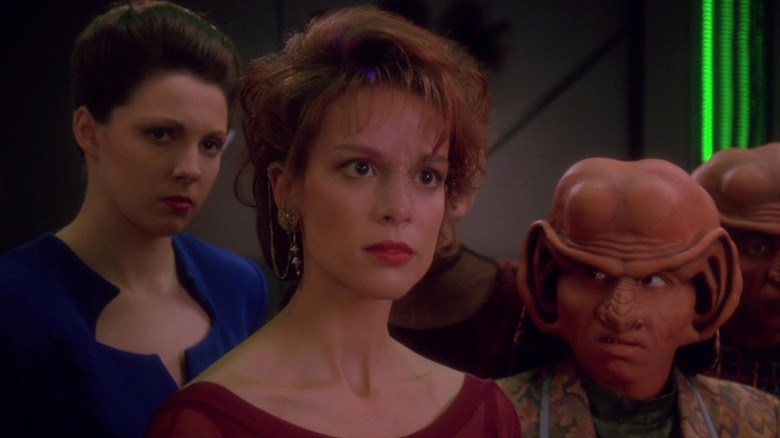The Infamous 'Star Trek Actress Case' - How Chase Masterson Fought Online Abuse
Sadly, the internet has made it far easier to harass women, famous or otherwise. Chase Masterson, whose legal name is Christianne Carafano, knows this all too well and has taken steps to prevent others from experiencing what she went through.
For background, Masterson is probably best known for portraying Leeta in over a dozen episodes of "Star Trek: Deep Space Nine," which ran in the 1990s. She'd end up reprising the role for a Season 4 episode of "Star Trek: Lower Decks." However, coming off the fame of "Deep Space Nine," Masterson found herself in the middle of a false internet profile. In 1999, according to Case Briefs, someone created a fake profile of Masterson for Matchmaker.com, an online dating service. In addition to including sexually suggestive material, the profile also included an email address, and as stated, "Upon sending an email to this address, one would get an automatic response stating 'You think you are the right one? Proof it!!', and provided [Masterson]'s home address and telephone number."
Through this, Masterson received numerous sexually explicit messages through phone and email, including some threats. To protect herself and her son, Masterson had to flee her home for several months, living in hotels during this time. She managed to get the profile removed from the website, and she followed through by filing a lawsuit against the proprietor of the website, Metrosplash.com, Inc., alleging "invasion of privacy, misappropriation of the right of publicity, defamation, and negligence." The media dubbed the suit the "Star Trek actress case," and while it may not have played out in Masterson's favor, she's worked tirelessly to help others.
Chase Masterson founded an anti-bullying organization
The unfolding situation was undoubtedly traumatic for Chase Masterson, with the case eventually reaching federal district court. However, the district court judge ultimately sided with Metrosplash.com, Inc. for rules under the Communications Decency Act of 1996. Basically, Matchmaker.com was classified as an interactive computer service, which means the company isn't liable for what other individuals put on the website. Users create the content, helping establish a precedent that websites that host data aren't responsible for what people publish.
Masterson appealed the verdict, but the appellate court also ruled in favor of Matchmaker. Liability rested with the person who released her personal details, not the company. It may have been disappointing for Masterson, but with the account taken down, she was able to get her life back on track. She continued acting over the years, including getting a guest spot on "The Flash." But much of her attention has gone toward charitable endeavors since the court case, including working with Homeboy Industries, which aids men and women who used to be in gangs or incarcerated in redirecting their lives. Masterson is also the founder of the Pop Culture Hero Coalition.
This is a first-of-its-kind organization that utilizes television and film to prevent bullying from taking place in schools, conventions, and online. From conversations with celebrities to coloring books aimed at promoting mental health, Pop Culture Hero Coalition celebrates fandom to help people overcome hardship. Masterson understands online abuse better than most, so to see her assist those who perhaps don't have the same resources is truly heartwarming to witness.

